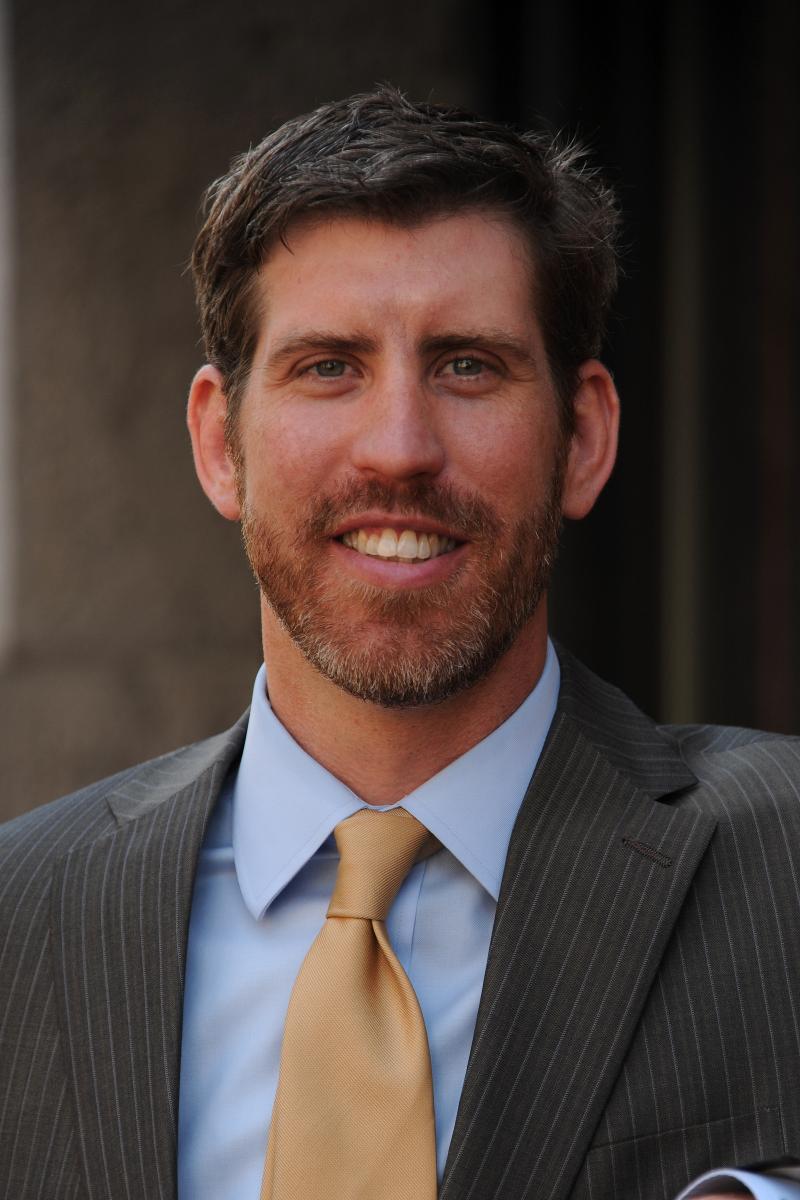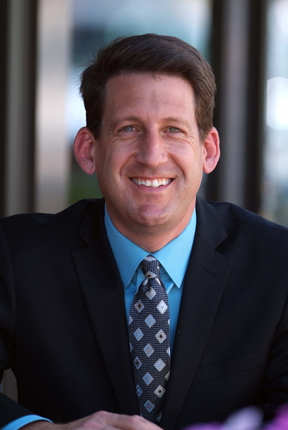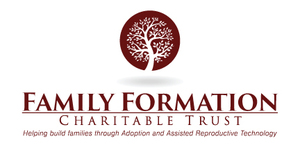Thank you for taking a few moments to read our newsletter.


We hope your summer is filled with Colorado sunshine and lots of outdoor activities. If we can ever be of service to you, please contact our office any time. As a reminder, our office handles adoption, assisted reproduction, immigration and child welfare matters.
Sincerely,
|
|

Family Preparedness Plans for Immigrants

The changes to our nation's immigration laws, policies, and procedures proposed by the current administration has led to concern and fear in immigrant communities. Immigrant families can be proactive by creating an emergency plan to safeguard their children and ensure their wishes are fulfilled in the event of immigration detention or deportation. Although especially important in the current political climate for families without
immigration status, all families should have a plan in place in case of emergency.
Kathleen Glynn, immigration attorney with Grob & Eirich, is a speaker on this topic and recommends the following components of a family preparedness plan:
- Identify potential caretakers for minor children
- Gather documents in a safe place at home; important documents include children's birth certificates, social security cards, passports, emergency contacts, school records such as IEPs, and medical records (particularly if a child has medical issues or takes daily medication)
- Ensure school and medical emergency contacts are updated
- Create a phone tree so that the detained person can make one phone call and that person alerts others as needed
Kathleen recommends working with an attorney for certain aspects of an emergency plan. "Our law firm can assist with a formalized caretaker relationship such as a power of attorney, guardianship or allocation of parental responsibilities," says Kathleen. "Some families are getting letters notarized and that may not be enough for schools, medical facilities, or obtaining important identity documents such as a passport."
She also urges immigrants to pursue any paths to legal status that may be available. "Now is the time to talk to an attorney specializing in immigration," says Kathleen. "Most importantly, immigrants should know that everyone in the United States is protected by the constitution, regardless of immigration status."
Additional resources:
|

Funding an Adoption
At Grob & Eirich, we consider ourselves a family-building law firm. That means helping people with every aspect of their adoption needs. Many families struggle with how to pay for an adoption, which for an infant averages $25,000 to $40,000, depending on the particulars of the case. International adoptions cost more with travel expenses. Financial resources may be available for adoptive families in the form of tax credits, grants and loans.
Grants and Loans
On the
Grob & Eirich website
is a list of resources that may help to close the gap between the family you want and where you are financially.
 One such grant worth investigating is through the American Academy of Adoption Attorneys (AAAA) Family Formation Charitable Trust.
This Trust provides grants twice per year to families seeking to build their family through adoption or assisted reproduction. Seth and Tim are both Fellows of AAAA, and Seth has served as a Trustee for seven years and currently serves on the Trust grant review committee. This committee recently reviewed 27 applications and funded 15 families for a total of $20,000. The next review will be scheduled in the fall. Click here for more information about the Trust and deadlines for applications. One such grant worth investigating is through the American Academy of Adoption Attorneys (AAAA) Family Formation Charitable Trust.
This Trust provides grants twice per year to families seeking to build their family through adoption or assisted reproduction. Seth and Tim are both Fellows of AAAA, and Seth has served as a Trustee for seven years and currently serves on the Trust grant review committee. This committee recently reviewed 27 applications and funded 15 families for a total of $20,000. The next review will be scheduled in the fall. Click here for more information about the Trust and deadlines for applications.
Adoption Tax Credit
 Since its inception in 1997, the adoption tax credit has helped thousands of American families offset the high cost of adoption.
The credit applies to all types of adoption (except stepparent adoption), including international, domestic private, and public foster care. For non-special needs children, the credit covers qualified adoption expenses and is nonrefundable, which means it's limited to your tax liability for the year. However, any credit in excess of your tax liability may be carried forward for up to five years. The maximum tax credit amount for 2017 is $13,570 per child. Families who earn less than $
203,540
annually can claim the maximum credit while those making more than that amount annually may only claim a partial credit, and no credit can be claimed by families making more than $
243,540. Since its inception in 1997, the adoption tax credit has helped thousands of American families offset the high cost of adoption.
The credit applies to all types of adoption (except stepparent adoption), including international, domestic private, and public foster care. For non-special needs children, the credit covers qualified adoption expenses and is nonrefundable, which means it's limited to your tax liability for the year. However, any credit in excess of your tax liability may be carried forward for up to five years. The maximum tax credit amount for 2017 is $13,570 per child. Families who earn less than $
203,540
annually can claim the maximum credit while those making more than that amount annually may only claim a partial credit, and no credit can be claimed by families making more than $
243,540.
However, the credit may be vulnerable under the current administration. President Trump has talked about tax reform and ending various credits including the adoption tax credit. The American Academy of Adoption Attorneys has a lobbyist in Washington and is part of an Adoption Tax Credit Working Group strategizing to maintain the credit. You can help! Click here to take action and send a video message to your Member of Congress sharing your story about adoption and how the adoption tax credit helped your family in the adoption process or after placement. This website makes it very easy and includes suggestions on sending out messages on Facebook and Twitter to encourage others to take action too. Only with a collective effort can the adoption tax credit be saved!
|

Tim Eirich and Foster Parents Fight for Eva at Multiple Contested Hearings
Eva was born to a homeless mother, who struggled with substance abuse and would often leave Eva in the care of strangers. Eva was removed by the Department of Human Services (DHS) at seven months of age after she was found in the care of a sex offender. DHS initially placed Eva with relatives but, unfortunately, they were not able to care for her due to their own medical needs. Also, DHS had concerns about domestic violence in the home. After six weeks, Eva was moved again.
This time Eva was placed with foster parents, Jenna and Drew. The couple was excited to be foster parents and already had foster twins in their care. They understood the purpose of the child welfare system and were happy to support the children's reunification with their parents, if reunification was appropriate, but were interested in adoption if the children were not able to return home.
Jenna and Drew wanted to keep Eva's family connections and helped arrange visits with her biological mother once or twice a week. Two months after placement with Drew and Jenna, DHS found distant relatives out-of- state who expressed some interest in Eva, although they had never met her.
At first, Jenna and Drew were supportive of the idea of Eva being placed with extended biological family members, but after many months, a move never occurred and the relatives did not come to meet, let alone visit, Eva in Colorado.
After many months, DHS suddenly decided to send Eva out-of-state to the relatives she had never met. That's when Jenna and Drew called Tim Eirich. At that point in the case, they knew Eva had attached to them and considered them to be her parents. "We were the longest, most consistent caregivers she had ever had," says Jenna.
At the first placement hearing, Tim successfully argued to keep Eva with Jenna and Drew. A few months later, the biological mother's rights were terminated and DHS brought up placement again and requested yet another hearing. The judge granted the request and gave the relatives time to hire their own attorney.
"The judge encouraged the relatives to fight to get Eva, and they started to visit her," says Jenna. "That's when Eva stopped talking. She wasn't sleeping and became clingy to me. She was almost 35 pounds! I was carrying her all day and she was just a wreck. We knew moving her would be very difficult for her. It was the most stressful time of our lives."
Months later, the final hearing took place, and Tim again fought to keep Eva with the parents she had known from nine months to almost two years of age. He argued that moving Eva could be harmful based on her attachment needs and history of trauma. Tim was successful and, this past January, Jenna and Drew officially adopted Eva.
"What is interesting about this case is how many contested hearings we had: two placement hearings, a termination hearing and an appeal," says Tim. "Jenna and Drew not only continued to fight for Eva's best interest but also maintained incredible grace and compassion in dealing with the relatives seeking placement. I was impressed at how hard they worked to keep connections with Eva's biological family, including hosting the birth mother and other relatives in their home multiple times."
"Tim was amazing," says Jenna. "From the beginning, he was straightforward about the case and was always responsive to our questions. He was just as passionate about the case as we were. I would rate him a 10 out of 5."
|
|
|
Jenna, Drew, Eva and twin boys also adopted from foster care.
|
|

Struggling Adoptive Families Have Another Choice with Fresh Beginnings Program at Adoption Options
 Although most adoptions are stable and permanent, a small percentage are at risk of dissolving. Adoptions that fail usually involve older children who were abused, neglected or survived major trauma as young children, either domestically or internationally. These children may exhibit difficult behaviors such as lying, defiance, aggression, destruction of property, and sexual acting out, or they may have extensive medical needs. These behaviors and needs can be overwhelming to adoptive parents, and they may decide they can no longer care for the child and thus wish to have the child adopted by a secondary family. Although most adoptions are stable and permanent, a small percentage are at risk of dissolving. Adoptions that fail usually involve older children who were abused, neglected or survived major trauma as young children, either domestically or internationally. These children may exhibit difficult behaviors such as lying, defiance, aggression, destruction of property, and sexual acting out, or they may have extensive medical needs. These behaviors and needs can be overwhelming to adoptive parents, and they may decide they can no longer care for the child and thus wish to have the child adopted by a secondary family.
Adoption Options (
adoption-options.com
) recently created a new program to help these families in crisis called Fresh Beginnings. This program is for adoptive families who have tried intervention services but are still struggling with their adoption and not able to care for the child any longer. Adoption Options will help find a screened and approved family for the child and steer both families through the process of placing the child in a new home.
"We were getting so many phone calls from families in crisis. They wanted to know what other options were available, and we had nothing to tell them. It's happening more than people realize," says Adrienne Elliott, executive director of Adoption Options. "There needed to be another alternative than going through social services, or families getting so desperate that they advertise on the Internet which is so dangerous and illegal in some states including Colorado."
Seth Grob helped Adrienne develop Fresh Beginnings. Only a few programs like it exist in the U.S. and none in Colorado.
"This is not rehoming and does not involve families just dropping off their kid," says Adrienne
. "It is an extensive process. A relinquishing family must first meet with us to determine if they are a good fit for the program. If the family has tried other options such as therapy and treatment centers, then we can start the process and help find another family who will be a better fit for that child."
"Our firm does a lot of work in adoption dissolution cases now, both on behalf of families wishing to relinquish their parental rights and those families desiring to adopt an older child. We have seen a real increase in these types of cases," says Seth. "Fresh Beginnings will increase the number of families who will consider this type of adoption. We are encouraged about this important resource for Colorado families in crisis and most importantly, for the children needing a new adoptive home."
|
|
Grob & Eirich - In the News
Path to Child's Name Change Not Without Obstacles
The Daily Sentinel
May 20, 2017
Susie Smith was 15 when she was impregnated by her much older rapist.
She kept the child. Now, years after her attacker was prosecuted, convicted, sentenced and paroled, the 30-year-old Mesa County woman wants to change her daughter's surname from her own maiden name to "Smith" - her married name and the name of the man who raised the now 14-year-old.
Smith's case isn't unique, but it also isn't that common, said family attorney Lakewood-based Seth Grob of Grob & Eirich, and she has several options. All options involve the court and all would necessitate some involvement of Robert Gallob, the biological father of Smith's daughter.
|
Presentations
Seth Grob
American Academy of Adoption Attorneys Annual Conference, "Subsidy & SSI Benefits for Special Needs Children: Part II," (Montreal, Canada 2017) [with Deborah Spivack and Sherry Neal].
Timothy J. Eirich
American Academy of Adoption Attorneys Annual Conference, "Interventions in Child Welfare Cases," (Montreal, Canada 2017) [with Maria Bates, Esq.]
Convening on Children, Youth, and Families, "Special Immigrant Juvenile Status," (Vail, April 2017) [with Katie Glynn and Ashley Harrington]
Kathleen Glynn
Colorado Lawyers Committee, Colorado Bar Association, Center for Gender & Refugee Studies, Rocky Mountain Immigrant Advocacy Network CLE, Free Legal Training, Children's Asylum Law and Special Immigrant Juvenile Status, "Special Immigrant Juvenile Status," (Denver, February 2017) [presented with Ashley Harrington of RMIAN]
Capitol Hill Urban Ministry (CHUM) Clergy/Agency Director's Monthly Gathering, "Who is my neighbor?," a discussion around the issues of immigration and the sanctuary movement, (Denver, March 2017)
American Immigration Lawyers Association (AILA) Colorado Chapter CLE, Managing the First 100 Days, "Family Preparedness," (Denver, April 2017) [presented with Bridget McCann]
Convening on Children, Youth, and Families, "Special Immigrant Juvenile Status," (Vail, April 2017) [with Tim Eirich and Ashley Harrington]
Federal Bar Association Annual Immigration Law Conference, "Special Immigrant Juveniles: Basics of application, procedures, and recent trends," (Denver, May 2017) [with Christine Lockhart Poarch, Nickole Miller, and Elizabeth Dallam]
Federal Bar Association Annual Immigration Law Conference, "Special Immigrant Juveniles: Advanced procedures and hot topics," (Denver, May 2017) [with Christine Lockhart Poarch and Emily Creighton]
|
|
|
|
|
|